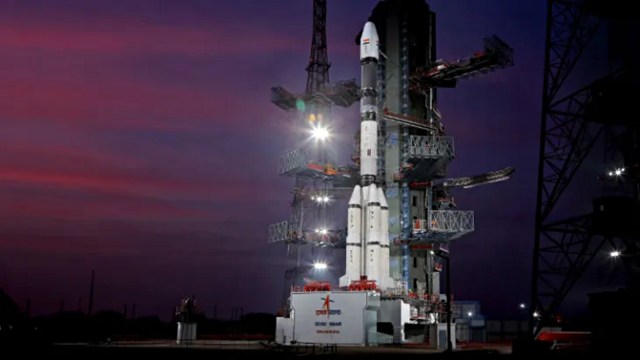The Axiom-4 space mission from the United States, which is flying India’s Shubhanshu Shukla among four astronauts to the International Space Station, has scheduled several experiments the results of which would help Indian Space Research Organisation execute its own manned spaceflight, Gaganyaan, two years later, ISRO chairman V Narayanan said on Tuesday.
There are at least seven experiments, relating to impacts on human health and growth of crops in microgravity environments, which ISRO has designed for the mission, keeping in mind their utility for the Gaganyaan mission, Nayaranan said.

“The Axiom-4 mission is expected to go up in the first week of June. The final date is not yet finalised. The mission is going to carry out several experiments — biological experiments, science experiments. This mission will provide first hand experience to our astronauts to work in the space environment, perform experiments, collaborate with others. All this is going to feed into our own Gaganyaan programme. Our key goal right now is to successfully carry out the Gaganyaan mission. All our efforts, including the experience we gain from the Axiom-4 mission, are geared towards that,” Narayanan said at a press conference in Delhi.
Story continues below this ad
The Axiom-4 mission is being operated by a private US company Axiom Space, in partnership with NASA and SpaceX. Three other astronauts, one each from the United States, Poland and Hungary, would be travelling to the International Space Station (ISS) with Shukla who will be piloting the Crew Dragon spacecraft of SpaceX. The Indian participation in this mission is a result of an agreement between ISRO and NASA to carry an Indian astronaut to the ISS.
Other than Shukla, the mission will fly former NASA astronaut and the director of human spaceflight at Axiom Space Peggy Whitson as the commander, Polish astronaut Sławosz Uznański and Hungarian Astronaut Tibor Kapu. All the three countries outside the US — India, Poland and Hungary — are sending their astronauts to space after a gap of 40 years.
Shukla, who will pilot the Axiom-4 mission, would follow in the footsteps of Rakesh Shama who went to the now-decommissioned Salyut-7 Orbital Station on-board Russian Soyuz T-11 rocket in 1984. ISRO’s director of human spaceflight centre D K Singh said Shukla would be able to eat moong dal halwa, mango nectar and different types of rice during his flight, in addition to the standard foods that NASA usually supplies to its astronauts.
Narayanan said India was spending Rs 550 crores for the mission which includes costs like training, equipment, and experiments that will be performed.
Story continues below this ad
One of the experiments relates to the study of the growth rate, cellular responses, and biochemical activity of cyanobacteria — a group of bacteria that are known to produce energy through photosynthesis just like plants. There is growing interest in studying this microorganism as it may offer the key to deep space exploration and long term presence of humans on the moon or other planets: a self-sustaining system for oxygen production without need for resupply from earth.
Another experiment would look at the impacts of spaceflight on germination and growth of sprouts in space. There is another experiment to study the impact on crop seeds as well. Earlier this year, cowpea seeds sent by ISRO on board the experimental platform on the last stage of PSLV germinated in space.
Then there is an experiment that will focus on the growth, metabolism, and genetic activity of microalgae. Microalgae again are being studied for its potential as a sustained oxygen generation system as well as a food source in space.
Another one will study the revival, survival, and reproduction of Tardigrades — an eight-legged, micro-animal sometimes referred to as moss piglets. These are extremely resilient animals, known to live in extreme conditions on earth. They are known to survive exposure to temperatures, pressures, air deprivation, radiation, dehydration, and starvation that would kill other species. NASA has also sent these micro-animals to space to better understand how they weather these extreme conditions.
Story continues below this ad
ISRO has also planned an experiment to study the impact of using electronic displays on the physical and cognitive functions of astronauts. It will also study the potential of skeletal muscle dysfunction in space and treatments that can help treat that condition.
Shukla and other astronauts will participate in a range of other experiments that are already ongoing in the ISS, ISRO officials said.









